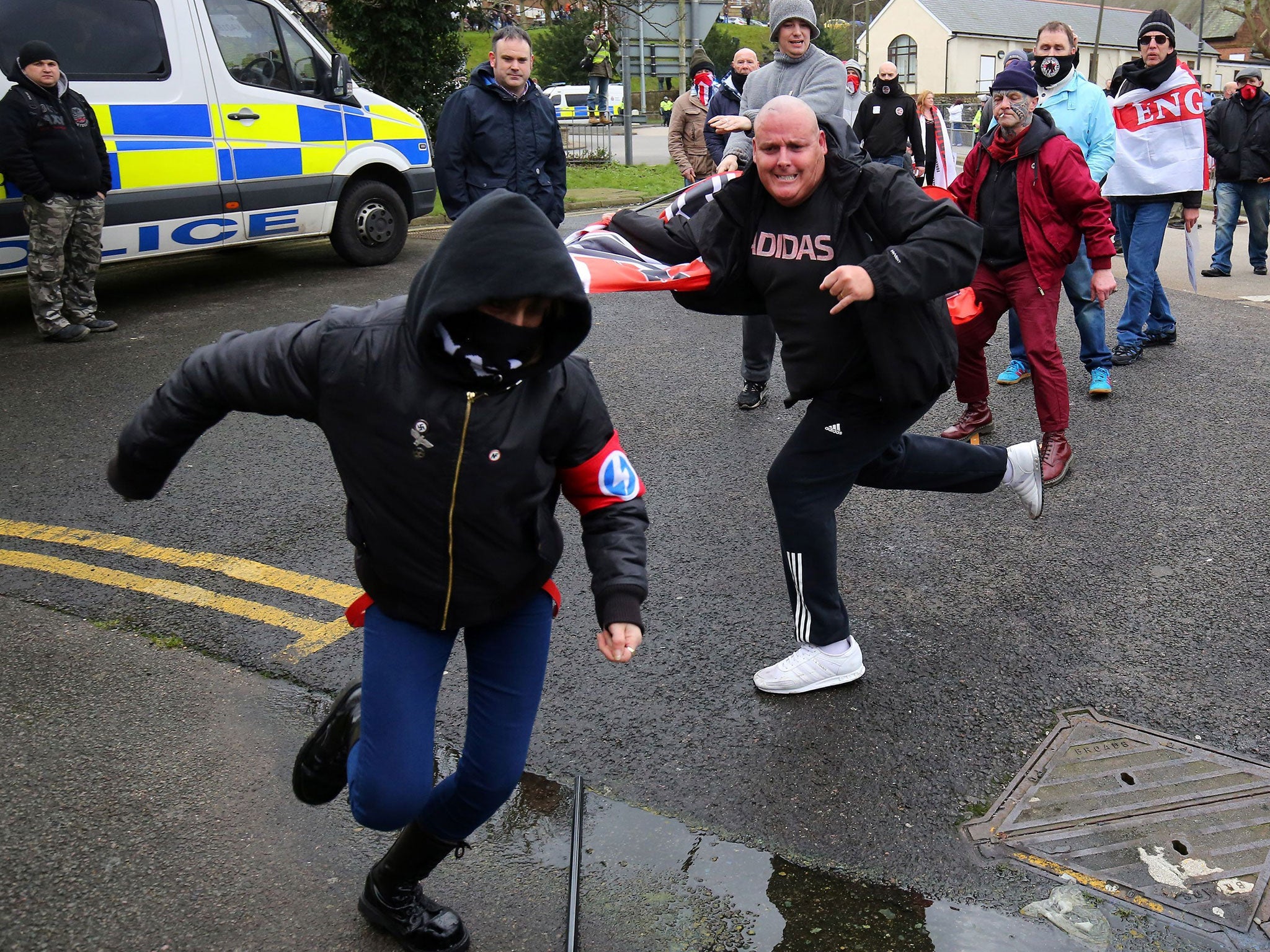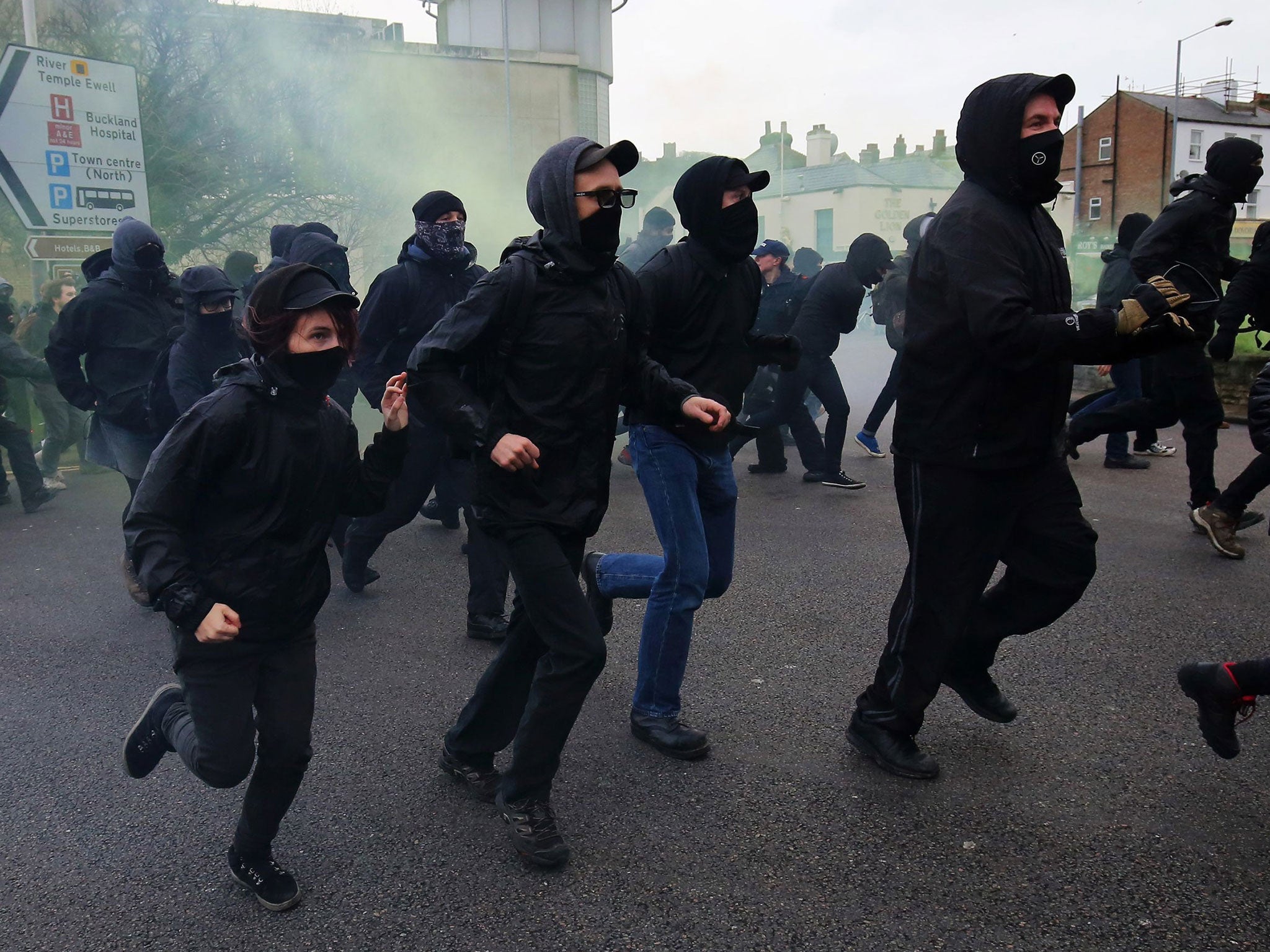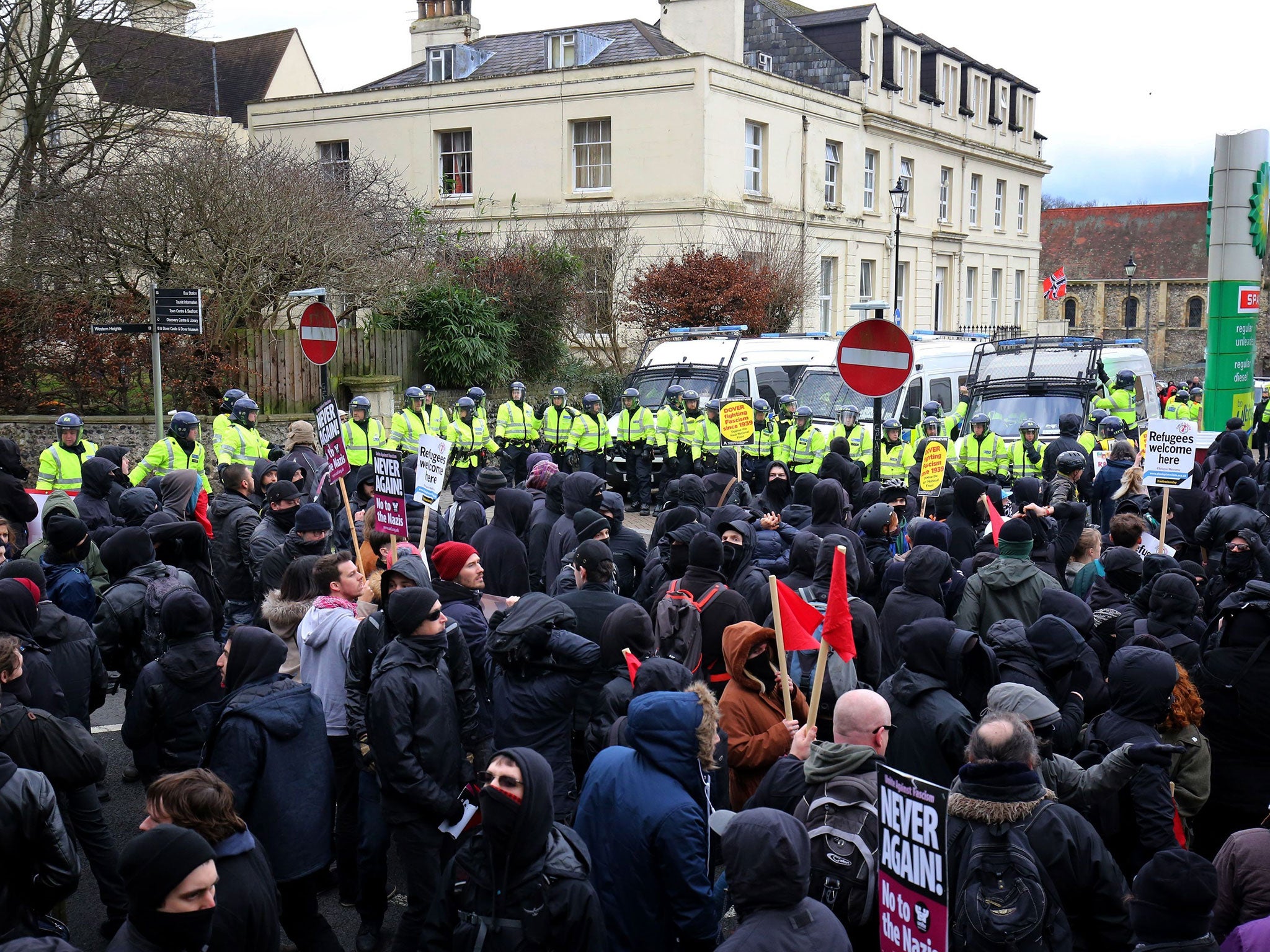Dover far-right march: Police increase presence to prevent repeat of violent clashes
January's rally saw bricks and smoke bombs thrown between far-right activists and anti-fascist protesters

Police are boosting the number of officers deployed at a protest to prevent a repeat of violent clashes between far-right and anti-fascist groups in January.
Officers are braced for potentially "significant disruption" among some protesters planning to gather on Saturday in Dover, Kent.
Mounted police, police dogs and barriers will be used to try to maintain peace between far-right protesters and the Kent Anti-Racism Network.
Conditions have been imposed by police on the organisers and protesters on their route and timings of their march to avoid confrontations.
And officers plan to use stop-and-search powers on people and their vehicles, while masked protesters may be asked to reveal their faces, Kent Police said.

Officers are keen to avoid a repeat of trouble which saw bricks and smoke bombs thrown amid violent scenes in the port town in January.
Flag-waving demonstrators from the National Front and the right-wing South East Alliance marched to protest against the arrival of immigrants.
The Kent Anti-Racism Network organised a counter-demonstration, to which shadow international development secretary Diane Abbott gave a speech.
A reporter for LBC said one far-right demonstrator threatened her, telling her she should be raped and that she should not be able to have children. No-one was seriously injured.
Around 40 people have been arrested since the protest, with 16 people charged with a variety of offences and 21 people on bail with conditions not to enter Dover.
Kent Police assistant chief constable Neil Jerome said they have a "comprehensive" operation ready - as he warned those who plan trouble they will be dealt with firmly.
He said: "It is safe to say there will be disruption in the town which, even with all the plans in place, cannot be completely avoided.
"We believe that if people are warned in advance, they can make arrangements to avoid getting caught up in the protest and go about their business. Our policing operation is intelligence-led, based on the best information available to us.
"However, due to the nature of these protests, it is impossible to know exactly how many people are going to be involved or how they will behave on the day.

"We know from the previous protest that there is a potential for a minority of those attending to cause significant disruption and behave in a disorderly and sometimes violent way.
"However, in spite of the outbreaks of disorder that occurred that day, or previously, the overall objectives were successfully met.
"The protest took place and the march went ahead as planned and no one was seriously injured."
PA
